Search Images
Browse Content (p. 1195)
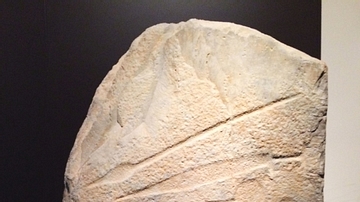
Image
Warrior Stela from Bronze Age Iberia
This stela is from Solana de Cabañas (Cabañas del Castillo, Cáceres), Spain and dates from the Late Bronze Age. It is made of slate, and it was unearthed in the late 19th century CE. This was the first specimen to be discovered in a series...
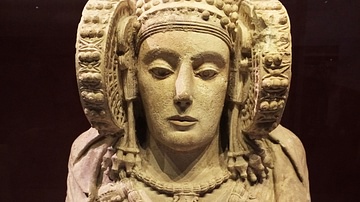
Image
The Lady of Elche
The "Lady of Elche" or "Lady of Elx" is a masterpiece of ancient Iberian culture. Carved in the round, the sculpture represents a woman with an idealized face, richly garbed and bejeweled. Made of limestone in the late 5th-early 4th century...
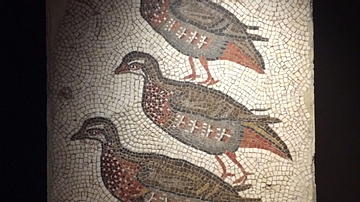
Image
Roman Mosaic with Partridges
This mosaic is made from limestone and marble, and it dates from the 4th century CE. It was found at Quintana del Marco (León), Spain. (Museo Arqueológico Nacional, Madrid)
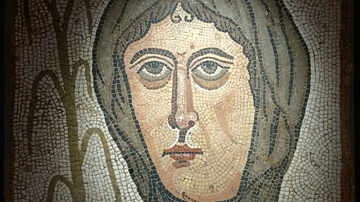
Image
Roman Mosaic of Winter
This mosaic is made of limestone and marble, and it dates from the 4th century CE. It was found at Quintana del Marco (León), Spain. (Museo Arqueológico Nacional, Madrid)
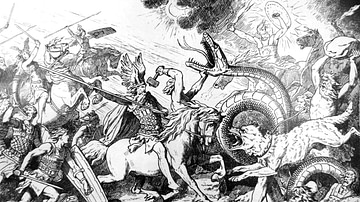
Image
Ragnarök
The wolf Fenrir broken loose from his chains and Thor fighting the Midgard serpent with his hammer Mjollnir (also Mjǫllnir, Mjölnir) at Ragnarök from Norse mythology, illustration by Johannes Gehrts from Walhall Germanische Götter und Heldensagen...
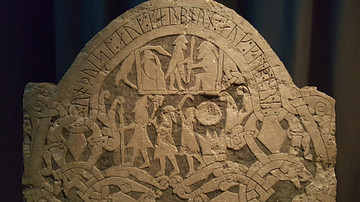
Image
Viking Rune Stone (Sanda, Sweden)
Top part of a rune stone found at Sanda, Gotland, Sweden, dating to the Viking Age, thought to depict Odin, Thor and Freyr. The runic inscription reads: 'Rodvisl and Farbjörn and Gunbjörn' (The Swedish History Museum/Historiska Museet, Stockholm...

Image
Yggdrasil
The World Tree Yggdrasil from Norse Mythology, as envisioned and depicted by Friedrich Wilhelm Heine in 1886.
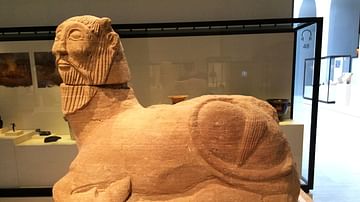
Image
Biche of Balazote
The "Biche of Balazote" is a hybrid sculpture of an androcephalous bull that has clearly been influenced by Greek models. The beast has the body of a bull and a human head with other animal features. The back was originally plain and abutted...
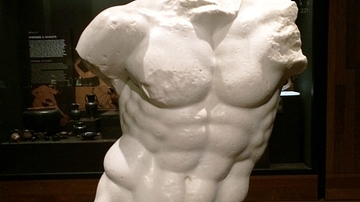
Image
Roman Torso of Hercules
This torso of Heracles was made in Rome around the 2nd century CE of the finest marble. Heracles' nude figure displays the dazzling truth of a body in the flower of youth and timeless beauty. By contrast with the beauty of the female draped...
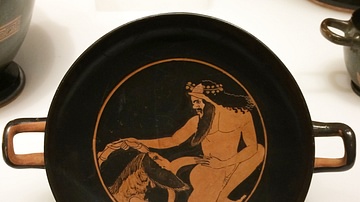
Image
Attica Cup with Man and Beast
This Attica cup was made by the "Colmar Painter" and dates from c. 500-480 BCE. It was made in ancient Greece. (Museo Arqueológico Nacional, Madrid)